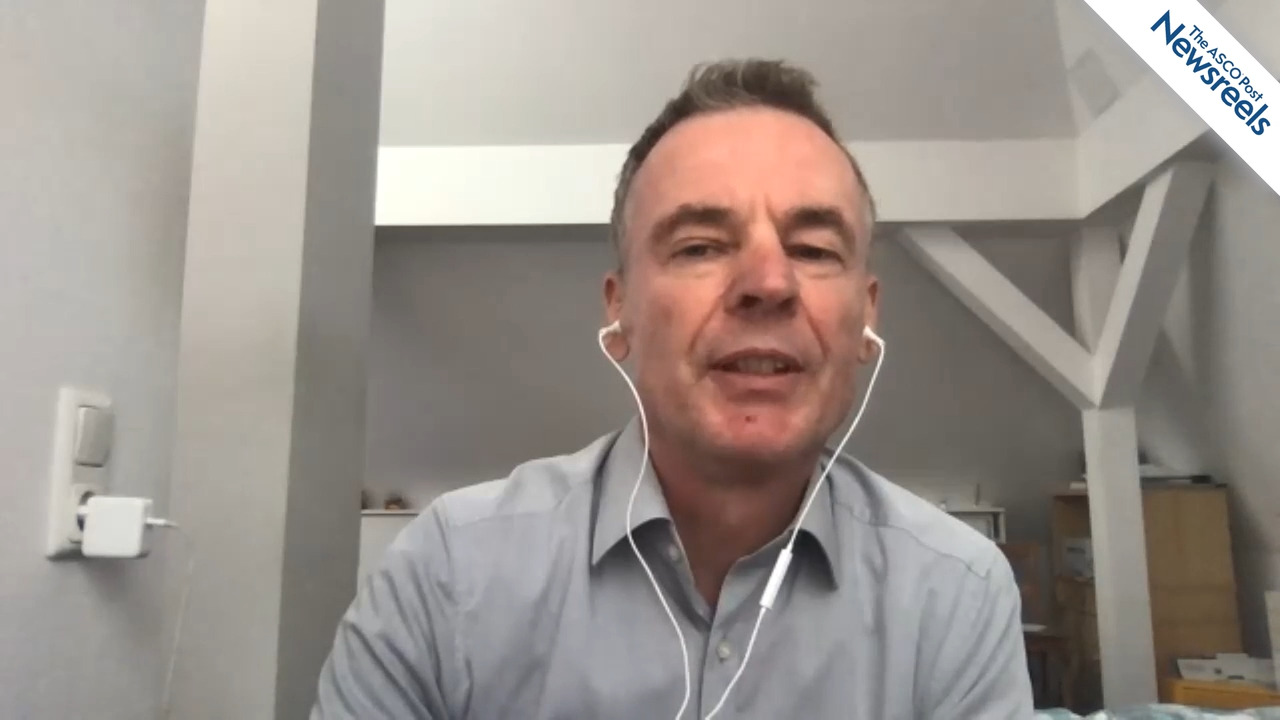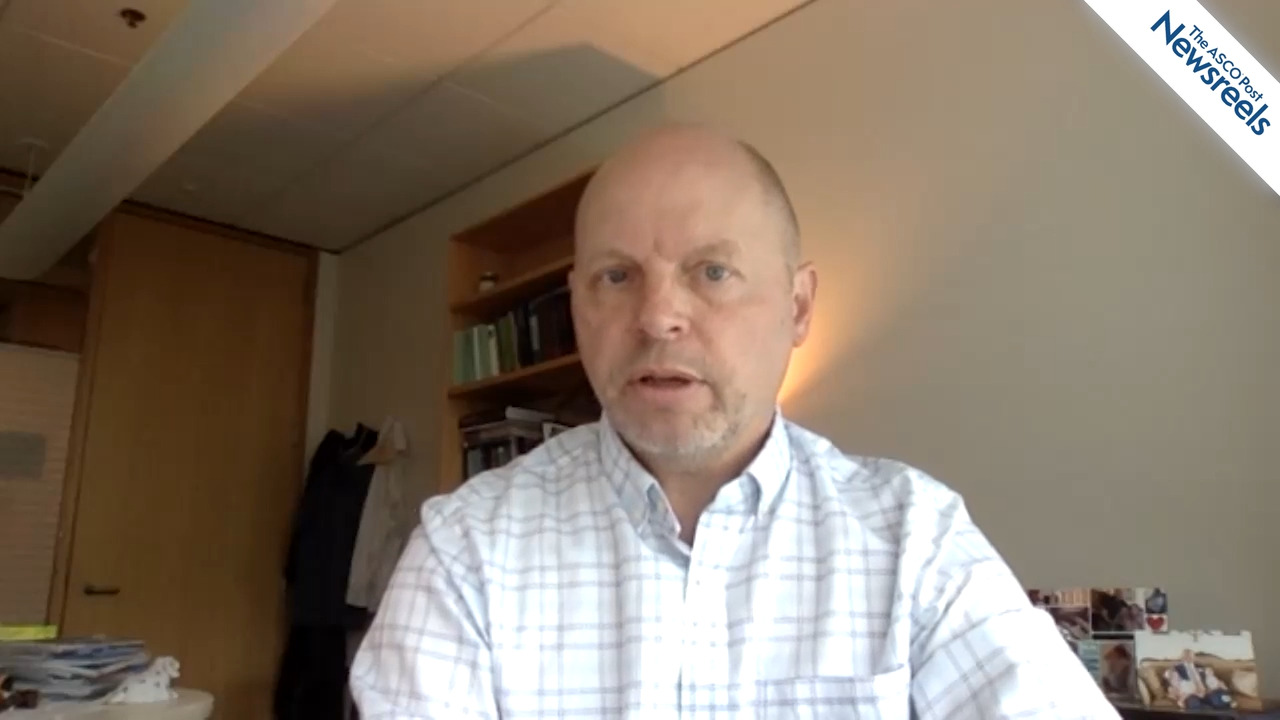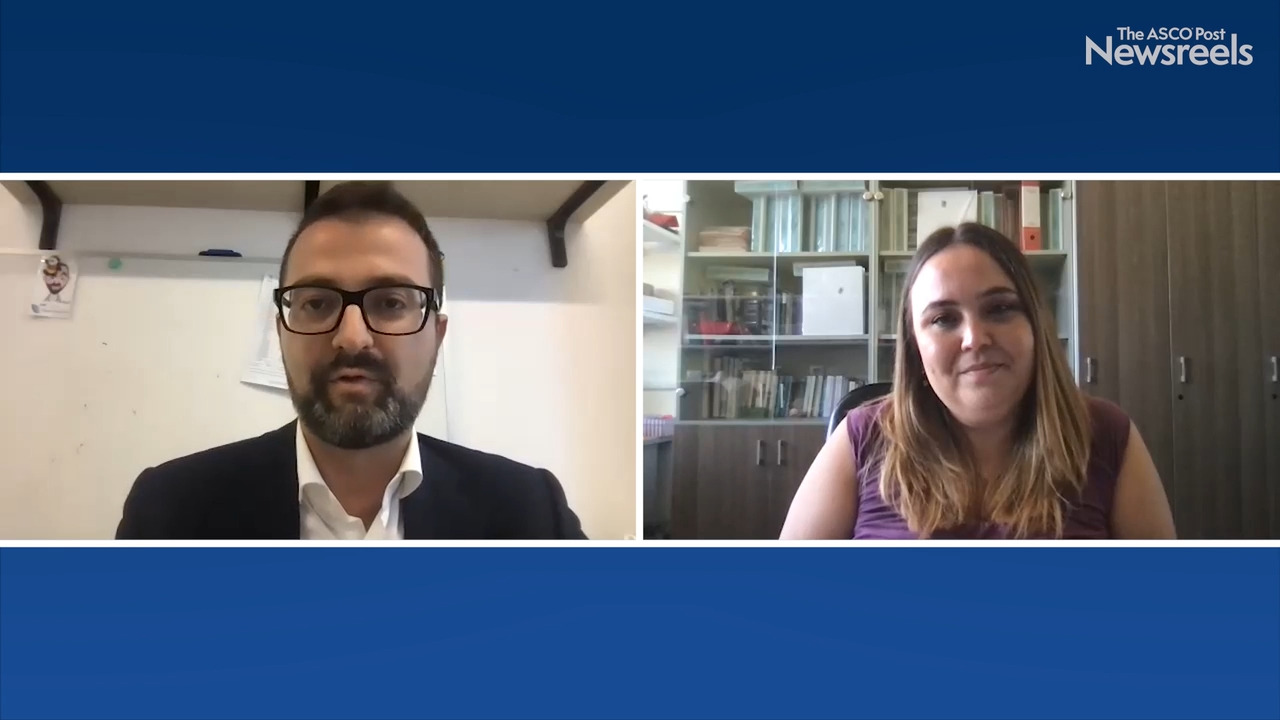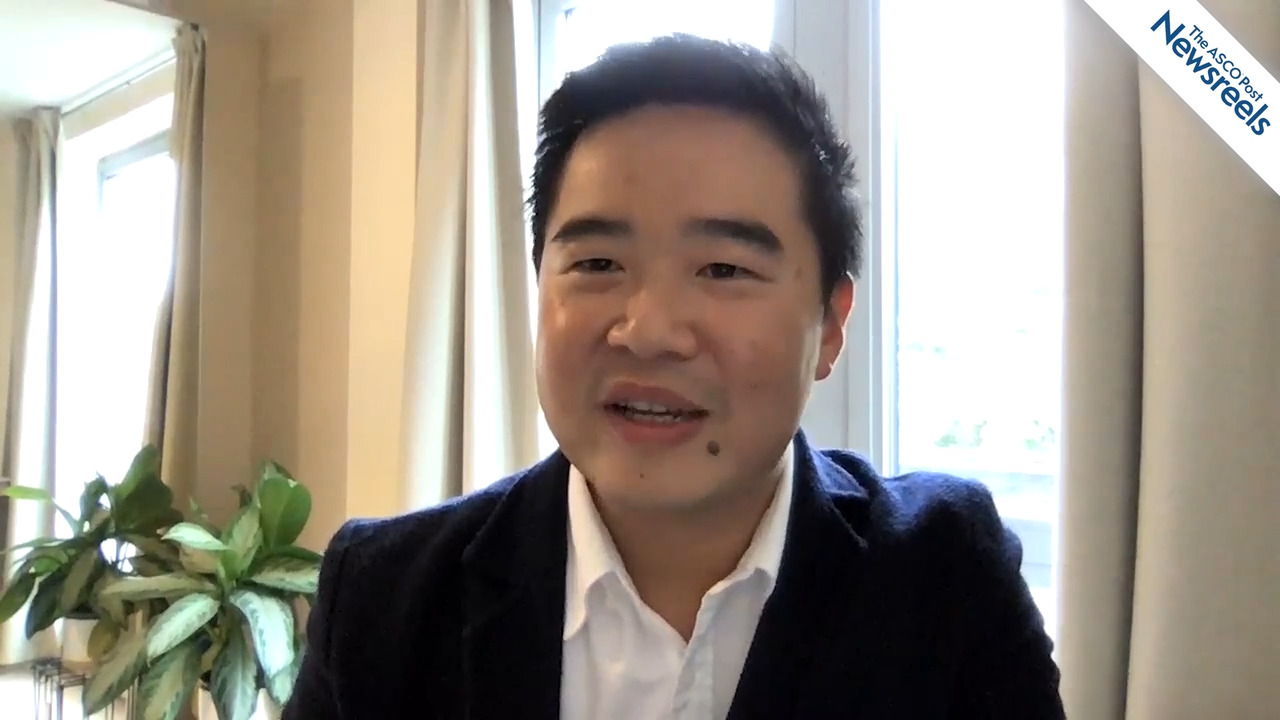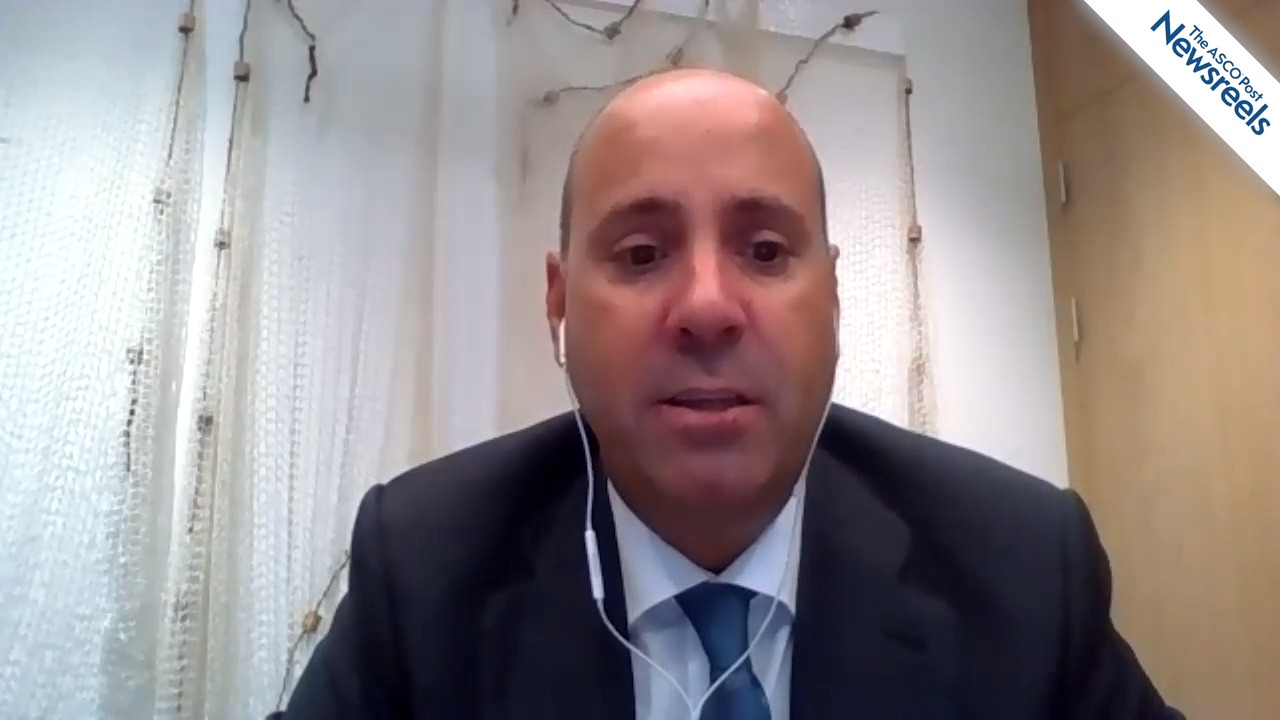Gabriel N. Hortobagyi, MD, on Advanced Breast Cancer Treated With Endocrine Therapy and Ribociclib
ESMO Congress 2021
Gabriel N. Hortobagyi, MD, of The University of Texas MD Anderson Cancer Center, discusses results from the MONALEESA-2 trial, which showed that adding the CDK4/6 inhibitor ribociclib to first-line hormonal therapy prolongs survival by 1 year for postmenopausal women with hormone receptor–positive, HER2-negative advanced breast cancer. As a result, he believes it should be considered the preferred treatment option (Abstract LBA17).
The ASCO Post Staff
Dieter Hörsch, MD, of Germany’s Central Clinic in Bad Berka, discusses phase III results from the SPINET trial, the largest prospective study to date of the somatostatin analog lanreotide autogel. The study suggests that this agent may prove to be an appropriate treatment option for patients with somatostatin receptor–positive bronchopulmonary neuroendocrine tumors, especially typical carcinoids (Abstract 1096O).
The ASCO Post Staff
Joseph M. Unger, PhD, of Fred Hutchinson Cancer Research Center, discusses findings from his study of the National Cancer Institute’s Clinical Trials Network, which has conducted publicly funded cancer research for more than 50 years. The substantial gains in life years for patients with cancer, he says, supports the critical role of government-sponsored cancer research (Abstract 1503O).
The ASCO Post Staff
Filippo Pietrantonio, MD, and Federica Morano, MD, both of the Istituto Nazionale dei Tumori, discuss results from the MAYA trial, which provided proof of concept that temozolomide-induced hypermutation may be exploited to achieve durable responses to low-dose ipilimumab plus nivolumab in patients with microsatellite stable metastatic colorectal cancer (Abstract 383O).
The ASCO Post Staff
Jonathan Lim, MBBS, MRCP, of Christie NHS Foundation Trust and the Francis Crick Institute, discusses results of an ESMO survey, which showed that the risk of poor well-being, distress, and burnout has continued to rise since the onset of the COVID-19 pandemic, despite improved job performance and sustained resilience. Those most at risk, he says, are women aged 40 years and younger (Abstract 561O).
The ASCO Post Staff
Javier Cortés, MD, PhD, of Barcelona’s IOB Institute of Oncology, discusses phase III data from the DESTINY-Breast03 study, which support trastuzumab deruxtecan becoming the standard of care for second-line treatment of women with HER2-positive metastatic breast cancer (Abstract LBA1).
